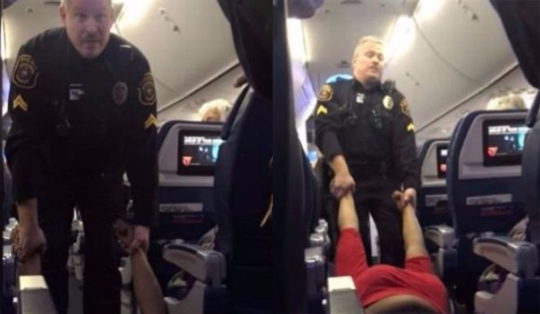Romulus, Dec 14: Officers had to drag a woman off of a Delta flight at Detroit Metropolitan Airport after authorities say she didn't follow the proper boarding procedures and refused the officers' requests to disembark.

The airport says in a news release that the incident happened Monday on a Delta Air Lines flight. It says the woman didn't follow boarding and baggage check procedures at the terminal gate, but it didn't elaborate.
A video posted online shows uniformed officers dragging the woman down the aisle as seated passengers watched. Airport officials say charges are pending against the woman, whose name wasn't released.
Wayne County prosecutor's office spokeswoman Maria Miller said today the case is being reviewed by the city attorney in Romulus, the suburb where the airport is located.





Comments
Add new comment